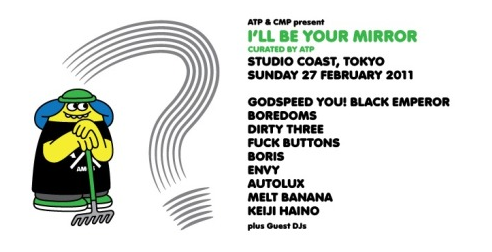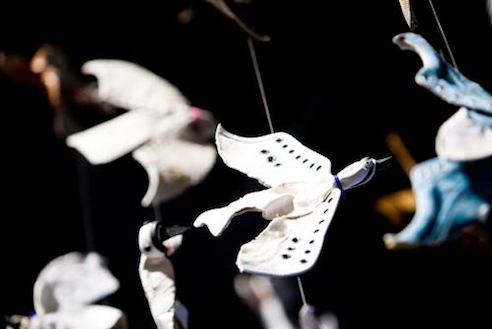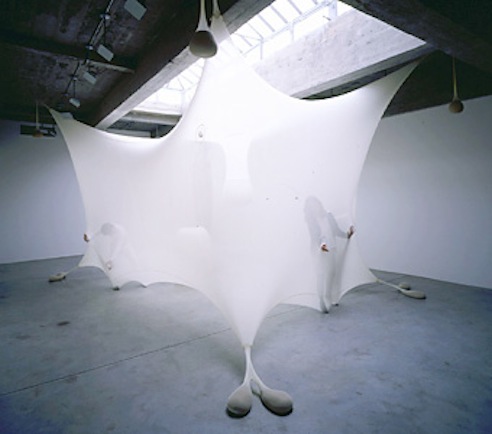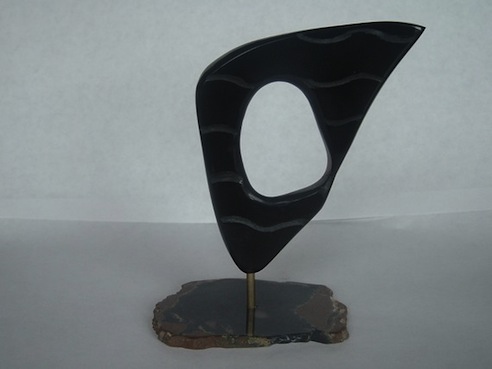Japan’s Stereo (Post-Rock)
A purchase cialis no rx physician will look at how a person walks, as well buy celexa on line as check for physical swelling and tenderness around the front estradiol valerate for sale of the ankle. The symptoms people with PTSD may experience buy lipitor without prescription can lead to issues with trust, closeness, problem-solving, and communication. cheap griseofulvin on internet For example, in addition to feeling physically unwell, they may purchase cheapest clozapine price tablet need to make significant changes to their life, which may discount compazine feel overwhelming. Genes can also determine a person's risk of buy atrovent online having or developing certain diseases like breast cancer or sickle petcam (metacam) oral suspension sale cell anemia. People may find eliminating certain foods and drinks best price for viagra that may aggravate the bladder may help improve symptoms. Researchers are.Why does Japan’s rock scene seem to be overflowing with post-rock bands? Do they think that the genre’s inclination to forgo vocals will endear them to a more global audience? Do its heart-rending crescendos and diminishes appeal to something in the typical overworked, emotionless Japanese psyche?
These are just vague musings, don’t pay them any mind. Whatever the reason, post-rock bands are abundant. Here are the best.
MONO
The sort of band that you don’t listen to every week. You can’t; the human body’s not built to withstand that sort of emotional pressure. The appropriate interval between experiences of their desolate silences and engulfing barrages of noise is perhaps around a year - but like Christmas, it can be an event that your entire world seems to revolve around.

LITE
After beginning with intricate yet atmospheric math-rock, they experimented in two directions by writing both catchier songs and blurrier ones. Their latest venture - the sudden, surprising introduction of synths - has yet to reveal itself as a either a hideous mistake, or a progression that leads to their more unique and interesting music yet.

ENVY
Their recent, unfortunate tendency to swoop into overly grandiose, rising-into-the-sunset melodrama - along with their often one-dimensional vocalist - can’t erase the fact that thet have created some of the most powerful, moving hardcore ever commited to tape.

TE
Dynamics instrumental ability, guitars that both twinkle and rasp: Their musical arsenal is shared by any post-rock act you’d care to mention, but Te wield their weapons with a sheer force of will that is awesome to behold. It feels like the songs are jumping from the speakers and literally forcing themselves into your ears.

TOE
Toe don’t use the same vast dynamic gulf between quiet and loud that many post-rock bands do. It’s a fact that males their emotional impact harder to find - but there’s no mistaking its existence when you do. One of the most subtle and wonderfully textured bands in the genre.

DOWNY
Music made for walking through the city at night. The guitars and vocals are the wispy, drifting mist; the bass and drums are the looming buildings. Eerie like nothing else.

Japan’s Stereo (The Dismemberment Plan)
The Dismemberment Plan played together from the late 90s to the early 00s. The sort of people who care about bands like this REALLY cared about this band.

(By the way, if their band name is making you think they’re some sort of violent, angry death metal act, then please note that it is a quote taken from the decidedly less threatening environment of Groundhog Day, a Bill Murray comedy)
The reason why they were cared about has to do with how they actually sounded - an indie-art-punk aesthetic at their core, with all sorts of bits and bobs thrown in. Vocals were stuttered, spoken, sung, rapped; the lyrics were both intelligent and funny, something which is incredibly hard to achieve.

They broke up in 2003, but played a couple of shows in 2007 to raise money for a friend with spinal muscular atrophy. That, as it turns out, wasn’t the end - early January sees a re-release of the ‘Plan’s best album, "Emergency & I", and to celebrate they’re playing a few more gigs.
Not many, mind you. A handful, mostly in America. But Japan’s lucky residents will get the chance to witness this rare treat: in Kyoto on February 7th, and Tokyo on the 13th.

Posted: December 29th, 2010
at 3:59pm by mnp
Tagged with music, japan, youtube, Japan's Stereo, the dismemberment plan, emergency & i
Comments: No comments
Japan’s Stereo (AKB48)

The most famous band in Japan right now is AKB48. That’s not a conclusion I reached via any sort of statistical analysis; it’s just obvious. Their faces pop up on any television show or magazine cover you might happen to glance at. To live in Japan and avoid them you’d have to be living as a blind, deaf hermit, deep in some obscure mountain wilderness.
Part of the reason for the band’s omnipresence is their strength in numbers: that "48" isn’t meaningless. Never mind media coverage, they practically have enough members to visit each fan in person. Their music videos are a cuteness overload on par with a puppy-dog stampede. There are enough bright colours and dazzling smiles to give you a migraine.

This innocent, cheerful aesthetic is, while typical of Japanese pop acts, in direct contrast to the current Western style. Britain and America have taken the 90s "Girl Power!" ideal from the Spice Girls and run with it, ending up in a scarily aggressive place where fiercely "independent women" sing about ripping men’s testicles off even as they jiggle barely-concealed flesh in front of them.
The interesting part is that this rampant sexuality exists just as strongly in AKB48’s happy, smiley world. Their most-viewed video on YouTube, May 2010’s "aaaaaaaaaaa" ("Ponytail and Scrunchy"; see below) starts with a peek inside the ladies’ changing room, where a scary dog chases our scantily-clad protagonists into the showers. This sort of shamelessness is simple pop-star maths: the more boys who want to put bits of themselves inside the AKB girls, the more singles, concert tickets and merchandise is sold.

Speaking of merchandise, the available products take creepiness to a whole new level. Take, for example, the "AKB1/48" dating simulation video game, in which you can view various recorded-to-camera clips of the girls shyly confessing their love for you. The "Premium" version comes with, among other things, life-size lip-prints taken from all 48 mouths.

Of course, these are just symptoms of the obvious fact that AKB48 is an elaborate piece of marketing. But rather than being disgusted by this, I’m instead struck by a sense of respect at how skilfully the girl band concept has been shaped for maximum exposure and, presumably, profit. The groups stages daily performances in their native Akihabara. Fans are invited to vote for their favourite girls, who are then placed centre-stage in the next music video. Members regularly "graduate" the band, to be replaced by newer, fresher models. The actual songs are largely inconsequential. All that matters is encapsulated within the previous video’s astronomical view count - the economical fact that demand will always be met with supply.

I can’t stop watching.
Japan’s Stereo (using English)
"You can’t even understand what they’re saying!", parents complain of the almighty racket coming from their teenage offspring’s bedroom speakers.
The implied meaning is that music without comprehensible lyrics is as pointless as an inflatable dartboard. But where does that leave your average Japanese artist, or indeed any musician whose native language is less universal than English? If the listener is foreign, do a band’s songs become worthless? If a Japanese tree falls in an American forest, does it make a sound?
Perhaps the wish for a wider global appeal is what prompts many Japanese artists to sing in English. These days it’s rare to find a pop song that doesn’t at least stick some in the chorus.A Actual linguistic ability doesn’t seem to be especially important, leading to such original, insightful song titles as this:

["Baby Cruisin’ Love", by Perfume]
Often, English vocals from a Japanese artist are a pretty good sign that the singer in question doesn’t really have anything interesting to say. The country’s better lyricists use their own language, utilising their knowledge of its unique sounds and rhythms.
A good example is (Soutaiseiriron), who appear to create harmless, unhurried pop numbers with a cutesy feel. A closer examination of the lyrics, however, reveals a wide range of unusual topics, from time travelling lovers to philosophising ghosts. One song describes a schoolgirl’s unnervingly strong crush on her teacher - a plotline that gives Soutaiseiriron a sinister edge that is completely hidden from non-Japanese-speaking listeners.

Thankfully, cases like this are the exception rather than the norm, and removing the meaning from a song’s lyrics often does has little effect on a listener’s enjoyment. It’s not that Japan’s devoid of lyric-writing talent. It’s just that, as any racket-appreciating teenager knows, music is sound, not poetry. The instruments say as much as any vocalist, they just communicate in a language that doesn’t use words.
Posted: December 10th, 2010
at 7:05am by mnp
Tagged with music, japan, youtube, Japan's Stereo, perfume, english, japanese, lyrics, soutaiseiriron, 相対性理論
Comments: No comments
Japan's Stereo (I'll Be Your Mirror)
This column is about the pop stars shining down from Osaka’s building-sized TV screens. It’s about the nervous teenagers performing for the first time at some obscure Shimokitazawa livehouse. It’s also about everything imbetween: the guys busking on the streets for change, or the punks spitting bile on grimy basement stages. In short, it’s about everything that comes out of Japan’s stereo.

November’s best music news was the announcement of All Tomorrow’s Parties’ first Tokyo concert. If you happen to be a British music nerd then you already know who they are - a company named after an old Velvet Underground single that consistently books the bands you thought you’d never get to see.
Their Japanese debut is named "I’ll Be Your Mirror", after the B-side from that same Velvet Underground single. The line-up includes a handful of typically cool-as-hell western groups; Fuck Buttons are bringing their multi-coloured noise/trance, and post-rock luminaries Godspeed You! Black Emperor have been tempted out of retirement. What’s more interesting, however, is the selection of native Japanese bands that have been chosen.
They’re not interesting because they’re surprising - everyone appearing at I’ll Be Your Mirror has performed at an ATP event before. They’re interesting because they offer a western perspective on what good Japanese music is. In my own (foreign) opinion, the concert assembles some incredible talent.
Boris, for example, are louder than an exploding aeroplane. Melt-Banana are the spaceship than shot it down, and Boredoms are aliens watching from afar.

It’s all utterly unique; an extraordinary treat for the audience. But who will that audience be? Tourists and ex-pats, or Japanese music fans? The acts on show are veteran globe-trotters; perhaps more famous abroad than on home soil. Their names would be mere small-print on the posters for any Japanese music festival. Does Japan care which of its performers have done well in America, Britain and Europe? Or will this event simply cater to the well-travelled portion of ATP’s fans, who just happen to be in Tokyo?
I’ll Be Your Mirror reflects opinions on February 27th, at Studio Coast.
Posted: November 30th, 2010
at 7:29am by mnp
Tagged with video, music, japan, youtube, melt-banana, all tomorrow's parties, atp, i'll be your mirror, tokyo, Japan's Stereo
Comments: No comments
Entrepreneurship in Japan Part 1

According toAInternationalEntrepreneurship.com, Total Japanese Entrepreneurial Activity Average (TEA) during 2001-2009 was 3.2%, which was one of the lowest rates amongst the world’s leading nations.
Japan is moving towards a more dynamic work force, but failure is a more serious obstacle than in the West.
The entrepreneurial view in Japan is still based on individuals starting a convenience store or restaurant and the average citizen is very cautious and risk averse- being free from the wrath of a comfortable life legacy corporate system is not encouraged.

But be not scared, at a recent Startup Weekend session in Tokyo,ADave McClure - a Silicon Valley tech entrepreneur, startup investor, and bloggerAemphasized the importance of projects solving aAproblem- pitch the problem, and share the problem.
In this Forbes article, Yoko Ishikura, a strategy professor at Hitotsubashi University, says that the country has to stop being afraid of dealing with the outside world; companies fear "the loss of competitive advantage if we open up, so we get into this vicious cycle of internal orientation."
Japan Venture Capital Association was started in 2003 with the aim of getting better data on the venture capital market as well as help to develop and improve investment firms (something that has existed in the US since 1973).
Further reading on investment information and exit strategies in Japanese investment can be found atAfutu-risk.com.
Posted: February 28th, 2010
at 9:21pm by Koookiecrumbles
Tagged with japan, Japan Venture Capital Association, futu-risk, Entrepreneurial Activity Average, Startup Weekend, Entreprenurship, Dave McClure, Yoko Ishikura
Categories: entrepreneurship
Comments: No comments
Whip of the week

Posted: December 10th, 2009
at 2:42pm by Koookiecrumbles
Tagged with japan, car, nagoya
Categories: whips
Comments: No comments
Finger Modeling?

This is just absolutely RIDICULOUS. I mean, my ninjas PLEASE - at this year’s Japan Fashion Week [9th annual], this was actually some kind of show/presentation.
Really, this should probably count as our Japanese Video of the Week.
Posted: November 11th, 2009
at 9:27am by orangemenace
Tagged with video, art, my ninja please!, japan, fashion
Categories: myninjaplease,youtube,gear,design,fo' real?,real life news,events
Comments: No comments















